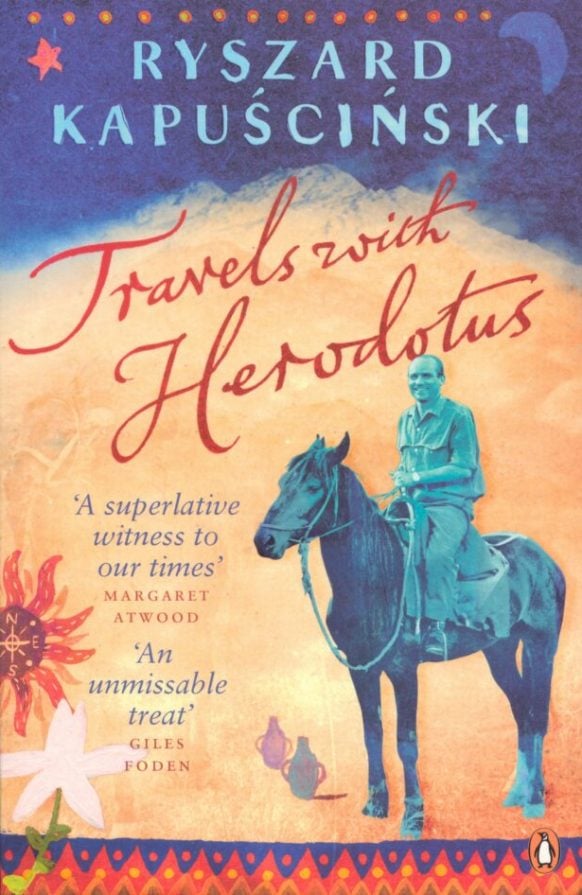Travels with Herodotus by Ryszard Kapuscinski
In this gem of a book, Kapuscinski, as a matter of introduction, starts telling us how, at the University of Warsaw, he first ever heard of Herodotus, the historiographer who, in the fifth century BC traveled across territories of the ancient world collecting information and reporting about foreign cultures.
Poland by then, six years after the end of WW2, was in tatters and inexorably orbiting around the influence of Stalin’s USSR. Therefore, no copy of Herodotus’ books was to be found in the country.
Less than a couple of years later, while working as a novice reporter for a local newspaper, the editor in chief commissioned him to travel to India and unexpectedly presented him with nothing else than the Histories by Herodotus to accompany him on the road!
Kapuscinski was absolutely taken by surprise, as life beyond borders was an unimaginable mystery and he himself, until then, did not know anybody who had ever traveled abroad.
The candid recount and honest insights of his journeys that follow are a delight to read, like his incredulity and amazement at the amount of light, shops and cafés discovered on the stop-over in Rome, as opposed to the dark and gloomy urban landscape he was used to. Or his self-consciousness when noticing that the jersey shirt and oversized suit he wore were absolutely out of place in that city.
In Nehru’s India, in Mao’s China, Nasser’s Egypt, Iran, Algeria, Sudan, Congo and the other countries where we accompany him, he found shelter in the pages of Herodotus whenever perplexed and disconcerted at the discovery of the Otherness.
The narrative actually is a mixture of memoir and philosophical reflections about human nature, triggered by Herodotus’ depictions about the strategies, battles and atrocities displayed particularly by Darius and Xerxes during the Greek-Persian war, which since then, reinforces the validity of the historical clash between East and West.
The book became Kapuscinski’s best companion on all of his journeys and did set for him not only a method to collect material but also the ethic teachings that would rule his career: no rejection or hatred for the Otherness, but understanding and respect for what is unique and distinct within a different context.
I am sure that, for readers interested in history matters, either from the ancient world as recounted by Herodotus, or from Kapuscinski’s insights about various parts of the globe during the last half of the 20th century, this book will constitute a prize difficult to beat.
Ryszard Kapuscinski (1932-2007) was an acclaimed and multi-awarded travel reporter, journalist, photographer, poet and author.
Further reading:
- The shadow of the sun by Ryszard Kapuscinski
- The Emperor by Ryszard Kapuscinski
- Imperium by Ryszard Kapuscinski
- The soccer war by Ryszard Kapuscinski
- Café Europa by Slavenka Drakulić
- The best American travel writing edited by Bill Bryson
- Facing the Congo by Jeffrey Tayler
- Ethiopia through writers’ eyes by Ives Marie Stranger
- The exploration of Africa from Cairo to the Cape by Anne Hugon
- Sahara by Michael Palin
Reviewed by Liliana Navarro
Library Assistant
Find this book in SMSA Library

